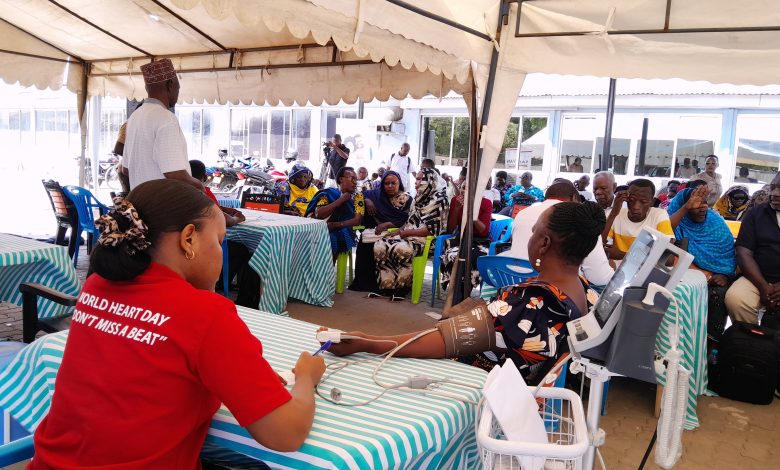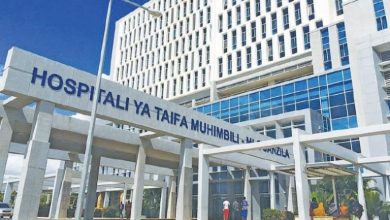4,000 Tanzanian children need urgent heart treatment

DAR ES SALAAM: THE Director of the Jakaya Kikwete Cardiac Institute (JKCI), Dr. Peter Kisenge, has said that statistics in the country show that 10,000 children are born with heart problems, out of which 4,000 children need urgent surgery, where out of 100 children, one child has a heart problem.
Speaking today in Dar es Salaam at the Heart Day Celebration on September 29, Dr. Kisenge said JKCI is providing free medical services to mark the day at the Dar Group branch for three days, where so far more than 220 people have come forward to receive services.
Dr. Kisenge explained that heart diseases are increasing rapidly, where more than 20 million people have lost their lives, and the day has been set to inform and educate people about these diseases.
“There are many causes of heart disease, including lack of exercise, excessive smoking, excessive alcohol consumption, eating foods that do not promote good nutrition, such as many high-fat foods, many starchy foods when you do not exercise or grow crops, which contribute to extreme obesity.
He added, “Some are foods that are high in protein, such as red meat. If you eat a lot and then do not exercise, you gain weight quickly and cause heart disease; others are opportunistic diseases, such as diabetes and high blood pressure that contribute to people getting heart disease,” he explained.
Dr. Kisenge said they are providing education on following a healthy lifestyle, including exercising and testing health to know the amount of fat, sugar, and blood pressure to protect themselves.
“Children also get it because a mother who is pregnant drinks a lot of alcohol should ensure that she does not drink alcohol for the first six months if she drinks there is a possibility of giving birth to a child with heart problems, excessive smoking, not getting vaccinated against opportunistic diseases, not treating diabetes and if you get pregnant, taking medication that does not follow the doctor’s instructions,” explained Dr. Kisenge.
ALSO READ: Two Tanzanian medical experts from BMH awarded prestigious fellowship
He advised pregnant women not to use medication without the instructions of health professionals as it can affect the heart of the baby in the womb, and to eat foods that contain folic acid.
Dr. Kisenge said that when they celebrate Heart Day, citizens should protect themselves from these diseases,s and added that they are using the media to provide education and awareness. They have launched a special program called the Dr. Samia Outreach Program.
“We have traveled to more than 23 regions, and more than 23,000 people have been reached. We will continue to provide training and education in these days. We are testing, we have created a song, and we will look for more artists.
For his part, the Director of the Jakaya Kikwete-Dar Group Heart Institute, Dr. Tulizo Shemu, said that statistics show that when the heart is affected, it affects the country’s economy, causing people to be unable to work and resulting in deaths. Over 60 percent of heart disease has been caused by non-communicable diseases.
“We tell people to protect themselves from heart disease. According to the World Report, 60 percent have no symptoms of the disease. It comes on suddenly, so people need to get tested regularly. The most common diseases are high blood pressure, stroke, heart enlargement, and kidney damage. Many people who fail to treat their blood pressure end up having their kidneys cleaned.
Dr. Shemu said that if heart disease is not treated, diseases like heart attack, to open one artery costs 6m/-, to install a device for the heart is 10 million shillings, and if the heart stops completely, a device costs 30 million shillings.
“These problems are preventable by checking your health at least twice a year, and those who are diagnosed should follow the instructions of health professionals, he stressed.
For his part, pediatric cardiologist Eva Kuganda said they have tested more than 25 children, and five of them have congenital heart problems.
“We have started surgical treatment for them; they were diagnosed with holes, and they had no symptoms. Children have congenital heart problems; some are affected by bacteria, and the heart valves can be born healthy and later develop problems.





